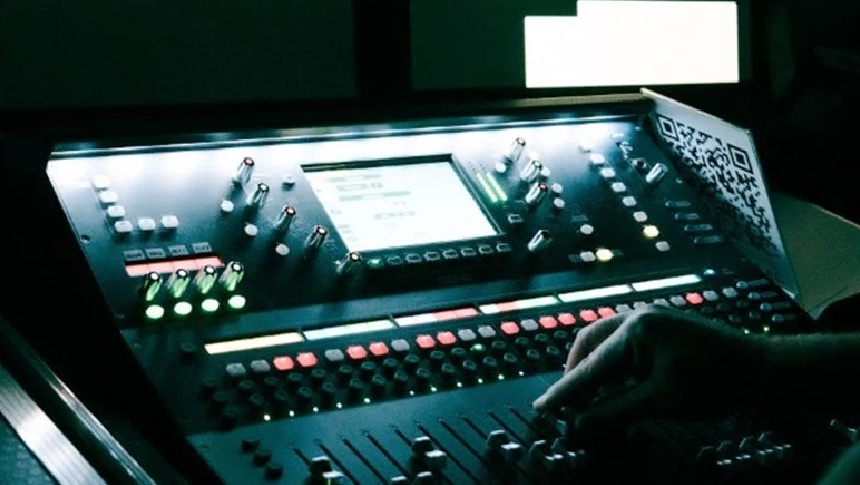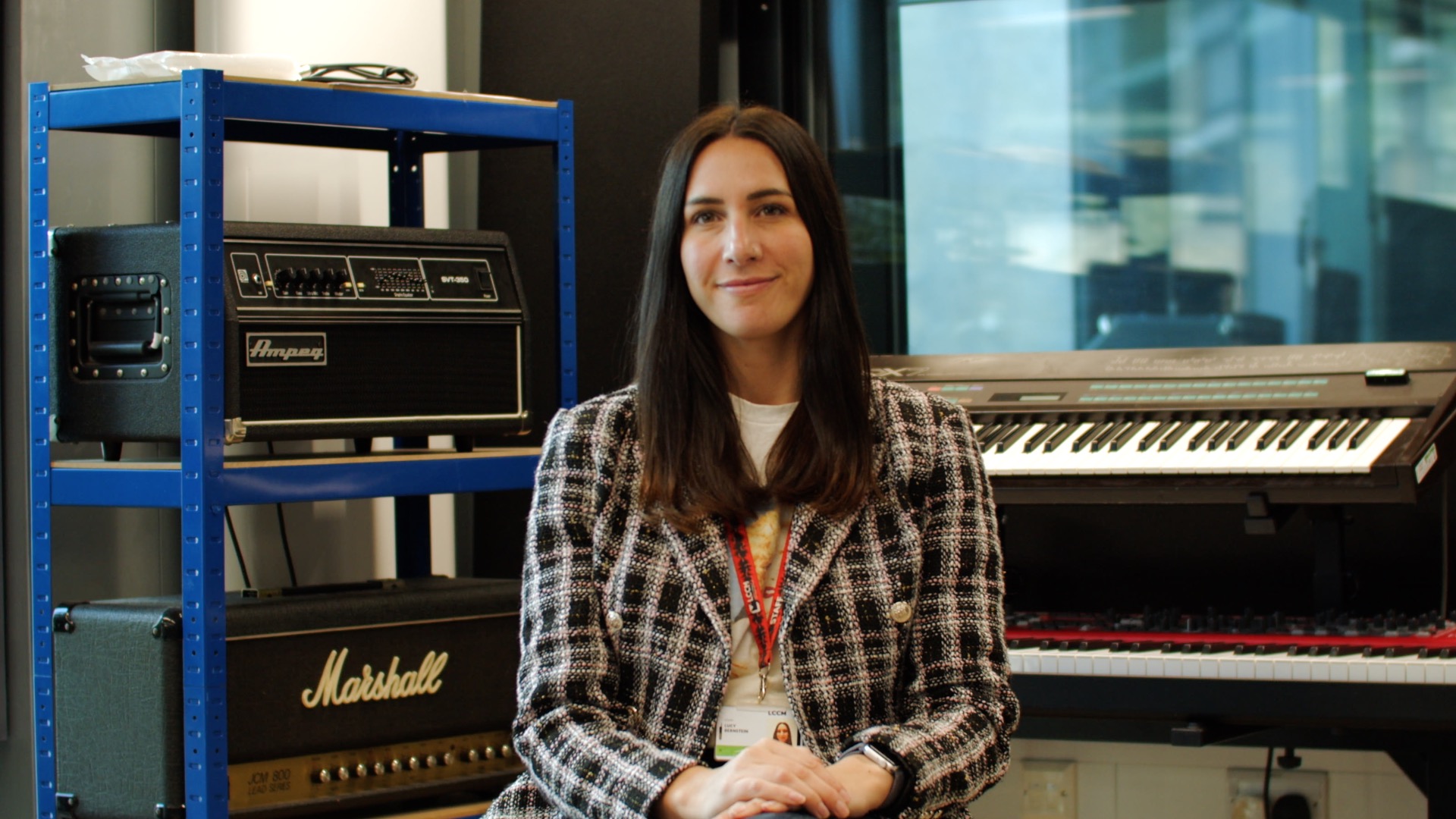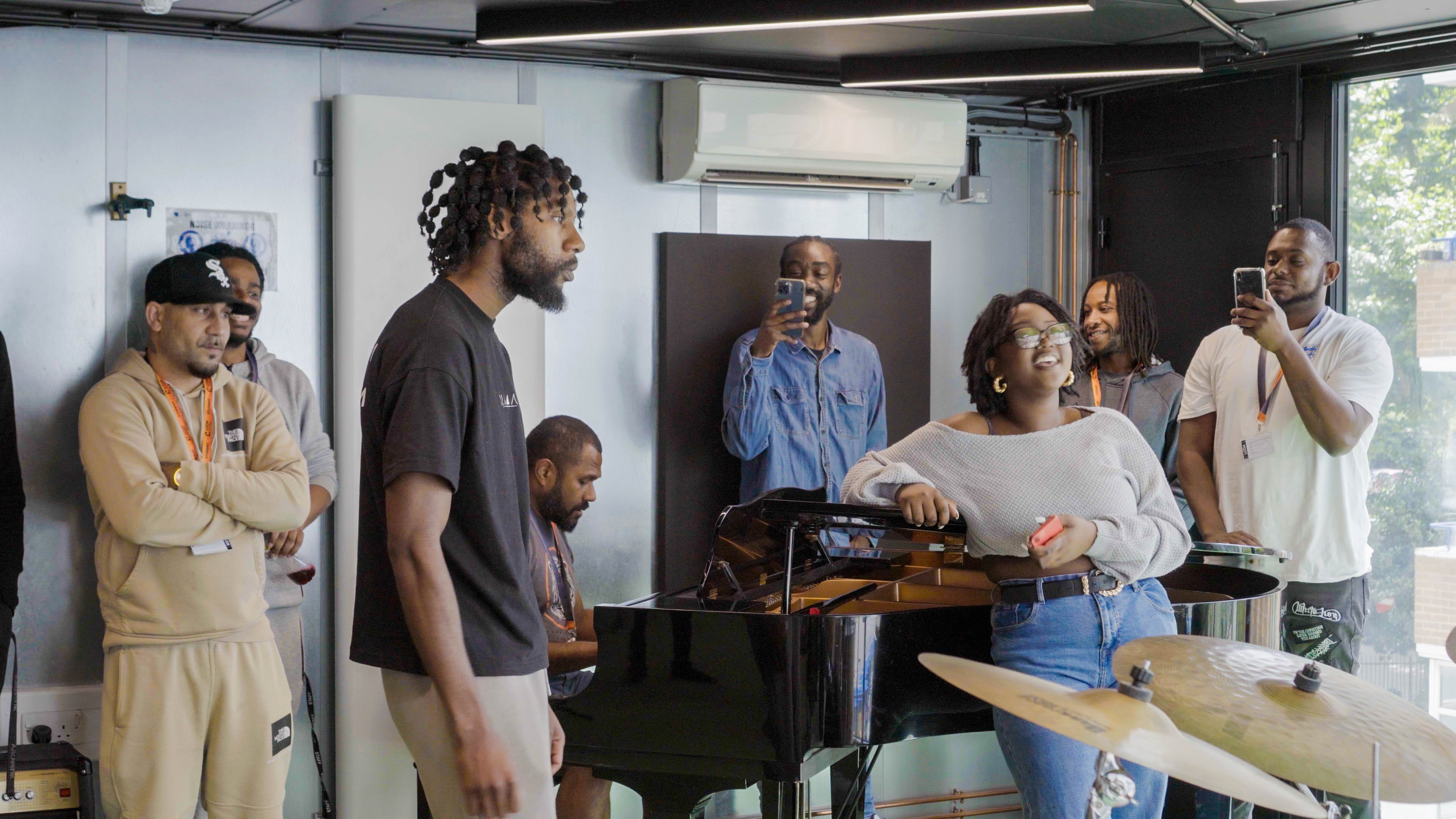If you look at the music industry from around 20 years ago, you’ll notice some dramatic differences. From the early days of analogue recording to the digital revolution, music technology has had a massive evolution and has shaped the way music is created, produced, distributed and consumed.
Over the decades, we’ve witnessed the shift from physical formats like vinyl and CDs to digital streaming platforms, reshaping not only how artists distribute their work but also how audiences engage with music.
This blog post will explore the evolution of this ever-changing landscape and discuss the benefits of studying it, top technological innovations and more.
What is Commercial Music Technology?
Commercial music technology involves the tools, software and hardware used to create, produce, distribute and market music on a commercial scale. It encompasses a wide range of technologies, from analogue recording equipment to digital audio workstations (DAWs), streaming platforms, and virtual reality experiences.
The Evolution of Music Technology
The journey of music technology is a fascinating one, marked by milestones that have redefined the industry. Early innovations like the phonograph and vinyl records laid the foundation for music recording and distribution.
The following development of magnetic tape recording expanded the possibilities for sound manipulation and multi-track recording.
The digital revolution ushered in a new era of music technology. The introduction of digital audio workstations (DAWs) transformed personal computers into powerful music production studios with professional music technology at people’s fingertips, democratising music creation.
Also, the development of high-speed internet and digital distribution platforms like iTunes and Spotify made an even bigger impact on the industry, giving artists unique control over their music.
Benefits of Taking a Commercial Music Technology Course
Commercial music technology courses can equip students with the skills and knowledge to navigate the music industry. It provides a comprehensive understanding of music production, sound engineering, digital audio workstations and music business principles.
Graduates of these programmes are well-prepared for careers in music production, sound design, audio engineering and related fields.
Here are a couple of things you may gain from a music technology degree:
- Audio engineering skills: Learn how to record, mix and master tracks using industry-standard equipment and software.
- Sound design expertise: Gain the ability to create and manipulate sounds for various media, including film, games and advertising.
- Music production techniques: Develop the skills needed to produce professional-quality music, from songwriting to final production.
- Digital audio proficiency: Become skilled in using digital audio workstations (DAWs) like Pro Tools, Logic Pro or Ableton Live.
- Understanding of acoustics: Learn the principles of sound, including how it behaves in different environments, which is crucial for both live and studio settings.
- Industry knowledge: Acquire insights into the music industry, including distribution, copyright law and music marketing strategies.
Top Technology Innovations in the Music Industry
The music industry has seen some of the most significant changes thanks to technological advancement. Here are some of the most significant breakthroughs in commercial music technology:
1. Digital Audio Workstations (DAWs)
DAWs have revolutionised music production, replacing analogue tape recorders. These software applications offer a versatile platform for recording, editing, mixing and mastering audio. With features like virtual instruments, effects and automation, DAWs have empowered musicians and producers to create complex productions in home studios.
2. Auto-Tune
Popularised by its use in hip-hop and pop music, Auto-Tune is a pitch correction software that can drastically alter a vocal performance. While often associated with a robotic sound, Auto-Tune has evolved to offer more subtle and natural pitch correction options.
3. Streaming services
Platforms like Spotify, Apple Music and Tidal have transformed music consumption. By providing on-demand access to vast music libraries, streaming services have disrupted the traditional music industry and created new revenue streams for artists.
4. Virtual Reality (VR) and Augmented Reality (AR)
Immersive technologies like VR and AR are reshaping the music experience. Virtual concerts, interactive music videos and augmented reality music games are becoming increasingly popular, offering fans new ways to engage with artists and music.
5. Social media
Social media platforms have become essential tools for musicians to connect with fans, promote their music and build a loyal following. Platforms like Instagram, TikTok and YouTube offer opportunities for artists to share their creative process, interact with fans and generate revenue through advertising and merchandise.
Overall, as technology continues to evolve, the music industry will undoubtedly see even more innovative changes, shaping the future of music in ways we can only begin to imagine. Whether you’re an artist, producer or enthusiast, staying informed about these developments can be helpful when it comes to navigating and finding success in the exciting world of commercial music.
FAQs
1. How has music production technology evolved over the years?
Music production has evolved from analogue equipment like reel-to-reel tapes to digital platforms with DAWs and software plugins. Today, high-quality audio interfaces, virtual instruments, and cloud-based collaboration tools offer greater flexibility and accessibility, allowing artists to create professional music from home studios.
2. What are the latest trends in commercial music technology?
Current trends in music technology include AI-driven tools for creating and mixing music, spatial audio for immersive experiences, blockchain and NFTs for rights management, mobile apps for on-the-go production and enhanced streaming service integration for personalised music recommendations and analytics.
3. What role does artificial intelligence play in modern music technology?
AI enhances modern music technology by generating melodies, automating mixing and mastering and personalising music recommendations. It streamlines workflows and introduces new creative possibilities, helping artists innovate and improving how listeners discover and engage with music.
4. What is the future of commercial music technology?
Future music technology innovations include advanced AI, augmented and virtual reality experiences and sophisticated analytics for deeper insights. Increased focus on sustainability and decentralised platforms like blockchain will likely reshape music production, distribution and monetisation, driving innovation and changing industry dynamics.





